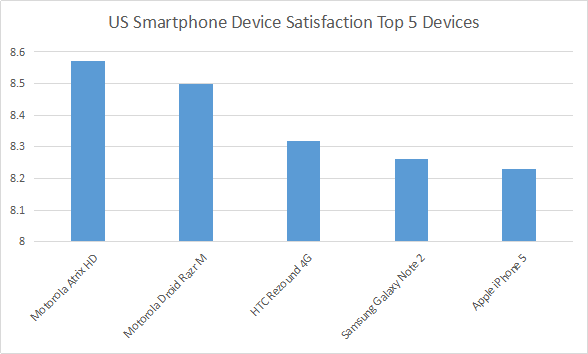1. One end of a string is connected to an electrically maintained vibrating bar while the other end is made to pass over a frictionless pulley.The free end is then loaded so that the string is under tension TThe string vibrates in X1 segments as the bar vibrates in transverse mode.If the tension is changed to T2 the string vibrates in x2 segments.Then:
Tags
Show Similar Question And Answers
 Source: 92.825 US mobile users, July 2012 - January 2013
Fortunately, those questions were answered by OnDevice Research’s representative. He explained that the survey was conducted on mobile web where the survey software could detect the taker’s device and since user’s rate their satisfaction levels on a 1 to 10 scale, thanks to the Nexus device, Google was included.If you analyze the three reports above, which of the following statements would be the best inference?
Source: 92.825 US mobile users, July 2012 - January 2013
Fortunately, those questions were answered by OnDevice Research’s representative. He explained that the survey was conducted on mobile web where the survey software could detect the taker’s device and since user’s rate their satisfaction levels on a 1 to 10 scale, thanks to the Nexus device, Google was included.If you analyze the three reports above, which of the following statements would be the best inference? Powered By:Omega Web Solutions
Powered By:Omega Web Solutions